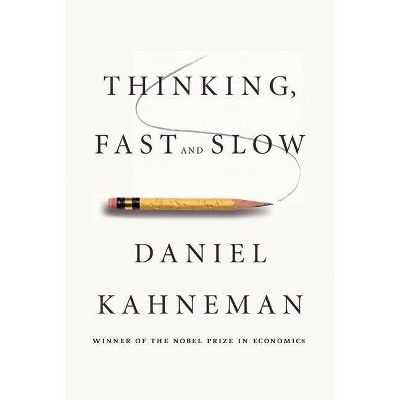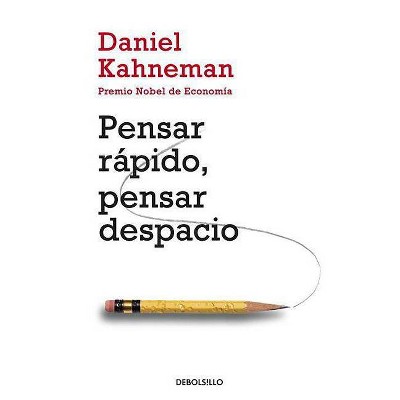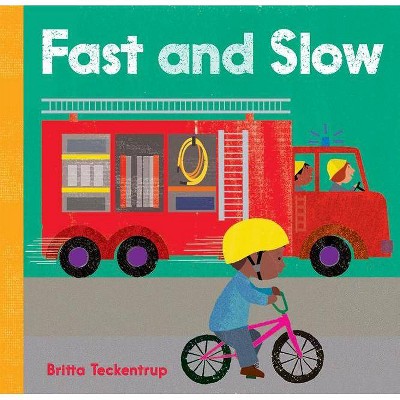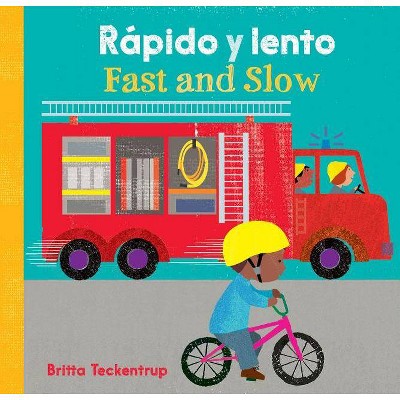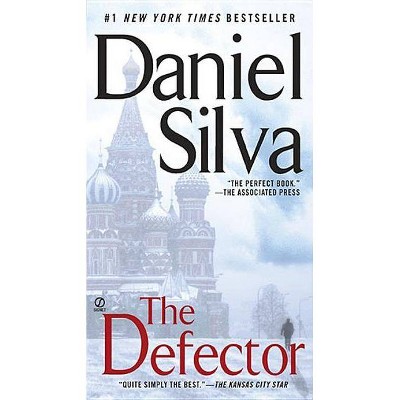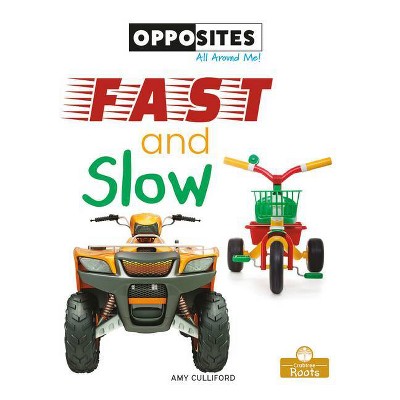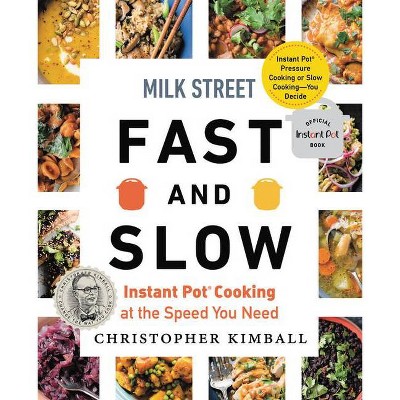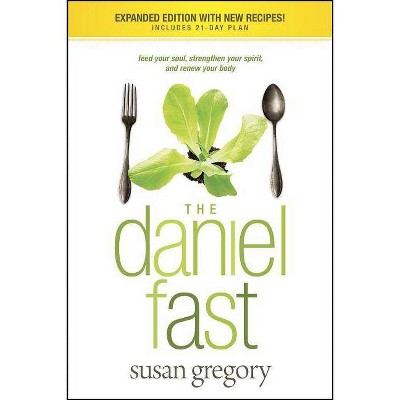Thinking, Fast and Slow (Reprint) (Paperback) by Daniel Kahneman
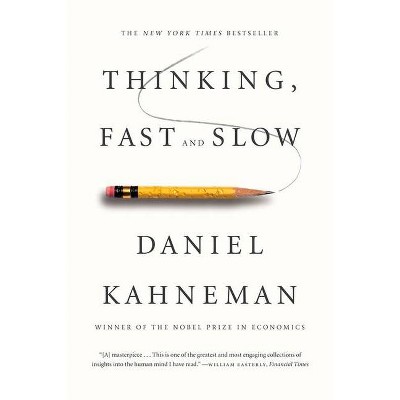
Similar Products
Products of same category from the store
AllProduct info
<p/><br></br><p><b> About the Book </b></p></br></br> Kahneman, recipient of the Nobel Prize in Economic Sciences for his seminal work in psychology, takes readers on a groundbreaking tour of the mind and explains the two systems that drive the way people think. Selected by the "New York Times Book Review" as one of the best books of 2011. <p/><br></br><p><b> Book Synopsis </b></p></br></br> <p><b>Major <i>New York Times</i> bestseller</b><br><b>Over two million copies sold<br>Selected by the <i>New York Times Book Review</i> as one of the ten best books of 2011<br>Selected by <i>The Wall Street Journal</i> as one of the best nonfiction books of 2011<br>2013 Presidential Medal of Freedom Recipient<br>Daniel Kahneman's work with Amos Tversky is the subject of Michael Lewis's best-selling <i>The Undoing Project: A Friendship That Changed Our Minds</i></b> <p/>In his mega bestseller, <i>Thinking, Fast and Slow</i>, Daniel Kahneman, world-famous psychologist and winner of the Nobel Prize in Economics, takes us on a groundbreaking tour of the mind and explains the two systems that drive the way we think. System 1 is fast, intuitive, and emotional; System 2 is slower, more deliberative, and more logical. The impact of overconfidence on corporate strategies, the difficulties of predicting what will make us happy in the future, the profound effect of cognitive biases on everything from playing the stock market to planning our next vacation--each of these can be understood only by knowing how the two systems shape our judgments and decisions. <p/>Engaging the reader in a lively conversation about how we think, Kahneman reveals where we can and cannot trust our intuitions and how we can tap into the benefits of slow thinking. He offers practical and enlightening insights into how choices are made in both our business and our personal lives--and how we can use different techniques to guard against the mental glitches that often get us into trouble. Topping bestseller lists for almost ten years, <i>Thinking, Fast and Slow </i>is a contemporary classic, an essential book that has changed the lives of millions of readers.</p> <p/><br></br><p><b> Review Quotes </b></p></br></br> <p>"It is an astonishingly rich book: lucid, profound, full of intellectual surprises and self-help value. It is consistently entertaining . . . So impressive is its vision of flawed human reason that the <i>New York Times</i> columnist David Brooks recently declared that Kahneman and Tversky's work 'will be remembered hundreds of years from now, ' and that it is 'a crucial pivot point in the way we see ourselves.' They are, Brooks said, 'like the Lewis and Clark of the mind' . . . By the time I got to the end of <i>Thinking, Fast and Slow, </i>my skeptical frown had long since given way to a grin of intellectual satisfaction . . . [I] urge everyone to buy and read it. But for those who are merely interested in Kahenman's takeaway on the Malcolm Gladwell question it is this: If you've had 10,000 hours of training in a predictable, rapid-feedback environment--chess, firefighting, anesthesiology--then blink. In all other cases, think."<br>--<b>Jim Holt, <i>The New York Times Book Review</i> </b> <p/>"There have been many good books on human rationality and irrationality, but only one masterpiece. That masterpiece is Daniel Kahneman's <i>Thinking, Fast and Slow . . . </i>This is one of the greatest and most engaging collections of insights into the human mind I have read."<br>--<b>William Easterly, <i>Financial Times </i></b> <p/>"I will never think about thinking quite the same. [<i>Thinking, Fast and Slow</i>] is a monumental achievement."<br>--<b>Roger Lowenstein, <i>Bloomberg/Businessweek</i></b> <p/>"Brilliant . . . It is impossible to exaggerate the importance of Daniel Kahneman's contribution to the understanding of the way we think and choose. He stands among the giants, a weaver of the threads of Charles Darwin, Adam Smith and Sigmund Freud. Arguably the most important psychologist in history, Kahneman has reshaped cognitive psychology, the analysis of rationality and reason, the understanding of risk and the study of happiness and well-being . . . A magisterial work, stunning in its ambition, infused with knowledge, laced with wisdom, informed by modesty and deeply humane. If you can read only one book this year, read this one."<br>--<i><b>Janice Gross Stein, The Globe and Mail </b></i> <p/> Everyone should read <i>Thinking, Fast and Slow</i>."<br>--<b>Jesse Singal, <i>Boston Globe</i></b> <p/>"[<i>Thinking, Fast and Slow</i>] is wonderful. To anyone with the slightest interest in the workings of his own mind, it is so rich and fascinating that any summary would seem absurd."<br>--<b>Michael Lewis, <i>Vanity Fair</i></b> <p/>"Profound . . . As Copernicus removed the Earth from the centre of the universe and Darwin knocked humans off their biological perch, Mr. Kahneman has shown that we are not the paragons of reason we assume ourselves to be."<br>--<b><i>The Economist</i></b> <p/>"[A] tour de force of psychological insight, research explication and compelling narrative that brings together in one volume the high points of Mr. Kahneman's notable contributions, over five decades, to the study of human judgment, decision-making and choice . . . Thanks to the elegance and force of his ideas, and the robustness of the evidence he offers for them, he has helped us to a new understanding of our divided minds--and our whole selves."<br>--<b>Christoper F. Chabris, <i> The Wall Street Journal</i></b> <p/>"A major intellectual event . . . The work of Kahneman and Tversky was a crucial pivot point in the way we see ourselves."<br>--<b>David Brooks, <i>The New York Times</i></b> <p/>"For anyone interested in economics, cognitive science, psychology, and, in short, human behavior, this is the book of the year. Before Malcolm Gladwell and <i>Freakonomics, </i>there was Daniel Kahneman, who invented the field of behavior economics, won a Nobel . . . and now explains how we think and make choices. Here's an easy choice: read this."<br>--<b><i>The Daily Beast</i></b> <p/>"Daniel Kahneman is one of the most original and interesting thinkers of our time. There may be no other person on the planet who better understands how and why we make the choices we make. In this absolutely amazing book, he shares a lifetime's worth of wisdom presented in a manner that is simple and engaging, but nonetheless stunningly profound. This book is a must read for anyone with a curious mind."<br>--<b>Steven D. Levitt, William B. Ogden Distinguished Service Professor of Economics at the University of Chicago; co-author of <i>Freakonomics</i> and <i>SuperFreakonomics</i></b> <p/>"<i>Thinking, Fast and Slow</i> is a masterpiece--a brilliant and engaging intellectual saga by one of the greatest psychologists and deepest thinkers of our time. Kahneman should be parking a Pulitzer next to his Nobel Prize."<br>--<b>Daniel Gilbert, Harvard University Professor of Psychology, author of <i>Stumbling on Happiness</i>, host of the award-winning PBS television series This Emotional Life</b> <p/>"This is a landmark book in social thought, in the same league as <i>The Wealth of Nations </i>by Adam Smith and <i>The Interpretation of Dreams by </i>Sigmund Freud<i>.</i>"<br>--<b>Nassim Taleb, author of <i>The Black Swan</i></b> <p/>"Daniel Kahneman is among the most influential psychologists in history and certainly the most important psychologist alive today. He has a gift for uncovering remarkable features of the human mind, many of which have become textbook classics and part of the conventional wisdom. His work has reshaped social psychology, cognitive science, the study of reason and of happiness, and behavioral economics, a field that he and his collaborator Amos Tversky helped to launch. The appearance of <i>Thinking, Fast and Slow</i> is a major event."<br>--<b>Steven Pinker, Harvard College Professor of Psychology, Harvard University, and author of <i>How the Mind Works</i> and <i>The Better Angels of our Nature</i></b></p> <p/><br></br><p><b> About The Author </b></p></br></br> <b>Daniel Kahneman</b> is Eugene Higgins Professor of Psychology Emeritus at Princeton University and a professor of public affairs at the Woodrow Wilson School of Public and International Affairs. He received the 2002 Nobel Prize in Economic Sciences for his pioneering work with Amos Tversky on decision-making. In 2013, Kahneman received the Presidential Medal of Freedom.
Price History
Cheapest price in the interval: 11.29 on March 11, 2022
Most expensive price in the interval: 11.54 on November 6, 2021
Price Archive shows prices from various stores, lets you see history and find the cheapest. There is no actual sale on the website. For all support, inquiry and suggestion messages communication@pricearchive.us
